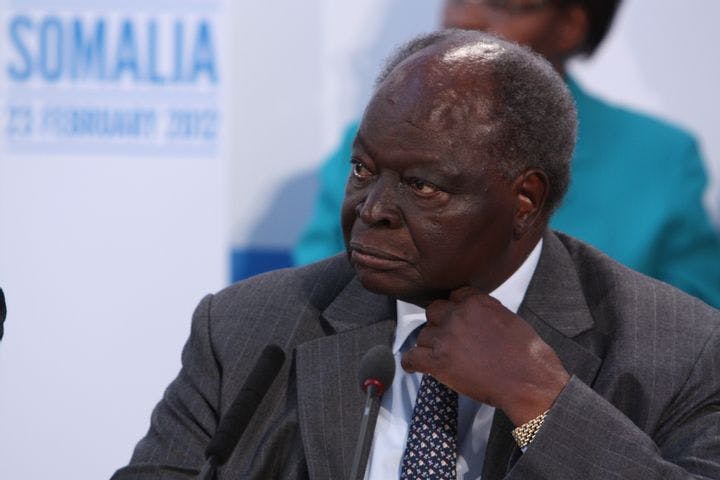Summer 2009
The Wages of Corruption
– G. Pascal Zachary
G. Pascal Zachary on corruption in Kenya.
Are nations poor because their governments are corrupt, or does a nation’s poverty corrupt its officials? Traditional scholars of economic development hold that once a nation achieves a sufficient level of prosperity, corruption naturally withers as the incentives to cheat diminish. But in recent years, the continuing poverty in countries in Africa, Latin America, and the former Soviet bloc spurred revisions to that way of thinking that place much of the blame for continuing poverty on corruption. International donors, such as the World Bank, and activist groups, such as the corruption-monitoring organization Transparency International, promote the idea that if only governments in poor countries were honest, their citizens would be much wealthier.
The debate suffers from a paucity of data, especially case studies. British journalist Michela Wrong, a former Nairobi-based correspondent for The Financial Times, tries to close this gap by shining a light on the frontlines of official corruption—the theft of money by politicians and their cronies. Her book, It’s Our Turn to Eat, neatly comports with the consensus view: the greater the corruption, the less the economic growth, and the worse the poverty. To illustrate, she tells the story of a single anti-corruption activist in Kenya, an East African country burdened by decades of government theft and malfeasance.
John Githongo, the son of a successful businessman, worked as a reporter before taking a job in Nairobi with Transparency International. Then, in 2002, members of the Kikuyu ethnic group to which he belongs took power in Kenya, promising reform. The new president, Mwai Kibaki, chose Githongo as his anti-corruption czar. Githongo met frequently with the president but grew disenchanted when he uncovered a massive scam, apparently managed by Kibaki himself, to steal at least $750 million in government revenues—one-and-a-half times the amount Kenya received annually in aid from foreign donors. After secretly taping high Kenyan officials discussing the scheme, Githongo fled the country for the relative safety of Britain, where he blew the whistle on his colleagues.
Wrong aptly views Githongo as prescient. “Long before most of his Kenyan contemporaries, he recognized graft’s awesome potential to destabilize and destroy a society,” she writes. Civil strife in the country in early 2008 reinforced the idea that “government corruption, far from being a detail of history, really does matter.” Yet Githongo is a flawed hero, partly because his acts of whistle-blowing, while admirable, led to no concrete changes in Kenya’s government. (Wrong’s characterization of the episode as “Africa’s Watergate” is an exaggerated comparison perhaps meant to make a British-centric book more relevant to Americans.) Kibaki not only survived the scandal, but managed to win office again in 2007 and remains Kenya’s president.
The lesson here is that the whistleblower approach to fighting corruption pays few dividends. Without mass support, Githongo was easily isolated, and his protest came to be viewed by many as a means of self-aggrandizement. He’s become a well-paid international consultant on corruption, wooed by Westerners who, Wrong writes, are “hungry for heroes” and possess “a limitless appetite for the rare voices of support coming from Africa” for the West’s reform agenda. The Kibaki government, meanwhile, has allowed Githongo to return home, hoping his presence in Kenya will go some way toward restoring the country’s tarnished reputation.
In a sad epilogue, Wrong perceptively contrasts Githongo’s cheerful fate with the outcome for a lowly civil servant who 10 years earlier blew the whistle on an equally massive instance of government corruption. That whistleblower, David Munyakei, was fired, publicly humiliated, and forced to take a new identity. He died penniless, of pneumonia, in 2006. Compared to Githongo, Munyakei was “far more typical of most African whistleblowers,” Wrong observes.
In Wrong’s unusual tale of intrigue inside the shadowy world of elite Africans, the continent’s real problem—a lack of democratic participation at all levels of society—remains unexplored. Corruption surely hurts African countries—morally, politically, and economically. But respect for law, and the courage to act against rogue leaders, cannot be imposed from the outside. Nor can a saintly reformer—whether Githongo or Nelson Mandela—clean up a dirty government alone. The battle against official corruption will achieve lasting success only when elites join with the majority of a body politic on a common project of reform.
* * *
G. Paul Zachary is the author of the memoir Married to Africa (2008).
Reviewed: It's Our Turn to Eat: The Story of a Kenyan Whistleblower by Michela Wrong, Harper, 354 pp, 2010.
Photo courtesy of the UK Foreign and Commonwealth Office
Up next in this issue
